Vayishlach
Shabbat shalom, everyone!
This week our parahsah is Vayishlach. Ya’akov is returning to the Land after twenty years in Haran, where he has acquired wives, children, sheep, goats and considerable wealth. Before crossing the river Yabbok, night falls, and again, in a famous sequence, Yaakov has a dream/vision/encounter with – whom? A man? An angel? His conscience? The text can be confusing:
“Now Jacob was left alone, and a man wrestled with him until the rise of dawn. When [he] saw that he could not overcome him, he struck his hip-socket, so that Jacob’s hip-socket was wrenched as [he] wrestled with him. Then he said, ‘Let me go; dawn is breaking!’ But [he] said, ‘I will not let you go unless you bless me!’ The other said to him, ‘What is your name?’ and he said: ‘Jacob.’ [He said,] ‘No more shall you be called Jacob, but Israel, for you have struggled with God and with human beings, and you have prevailed'” (32:25-29).
We can get lost in the “he’s” in this paragraph – but clearly Yaakov was engaged in a lengthy and life-changing struggle. How do we bring this wrestling into our lives?
There are many ways to “read” text – sometimes we may even absorb text into our bodies. This week I was helping my mother at the dentist. Mum is less able to follow instructions these days about how to move her body, so getting her into the dental chair involved me guiding her and then lifting her – and then it happened. I felt a searing pain in my own hip-joint! So this week, as I have considered the implications of Yaakov and his actions, I have also had pain in my own tuchus!
Pain can slow us down. Pain can make us consider our moves more carefully, it can even allow us to see the world from a different vantage point. This week in my Rabbinics class, one of my classmates introduced us to the work of Rabbi Kula – a 7th generation rabbi who sees himself as an innovator within the Jewish world. Pain met innovation!!
Rabbi Kula wants us to consider using the tools and instruments of Judaism in new and innovative ways – otherwise, he warns, our Jewish institutions will wither from neglect. He suggests, I would venture, that like Ya’akov, Judaism is injured, and to heal, needs to innovate from within – we need a vision, a dream.
Our very name, Israel, comes from this night of wrestling and of demanding questions, and like Ya’akov/Yisroel, many of us continue to wrestle. R. Kula suggests, I believe, that such wrestling must continue and is an essential element of innovation from within. We need to use the tools and technologies within Judaism to build stronger connection and community– in ways that will be meaningful to people who have stepped out of Judaism.
It can be difficult to formulate specific strategies from a generalized ideology, but I think we need to try. We need to ask more questions – and we need to develop some answers. And to help us, we turn to that timeless technology, Torah.
Let’s come back to Vaysihlach. Rachel, Leah, Ya’akov, Esau – what were the building blocks of their flourishing and their connection? As Ya’akov became Ya’akov/Yisroel what happened to his nature, his inclinations, his desires? Text is a technology – our Sages taught us often about the power of the words on our tongues. What can we learn today from these ancient teachings?
When we take Torah and absorb these stories into our own bodies, when we wrestle with these teachings, we build connection. Let’s build community together. Shabbat shalom.
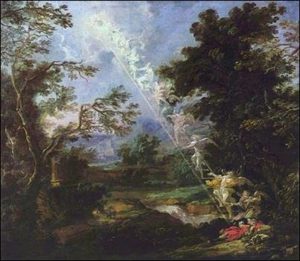 Shalom Aleichem. There was a chassid who used to travel a great distance to be with his Rebbe, chassidic master Rabbi Aaron of Karlin. Once, while making his journey, he was asked why he couldn’t find a Rebbe who lived closer to his own town.
Shalom Aleichem. There was a chassid who used to travel a great distance to be with his Rebbe, chassidic master Rabbi Aaron of Karlin. Once, while making his journey, he was asked why he couldn’t find a Rebbe who lived closer to his own town.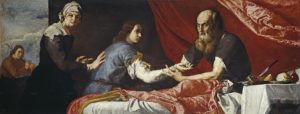 In the early twentieth century a man was brought to Rabbi Avraham Yitzhak Kook. This father had given his son a good Jewish education, he tried to set a good example, and he kept the mitzvot. Now, however, his son had drifted away from Judaism; he no longer kept mitzvot, he did not even identify as a Jew any more. What should he do? Rav Kook asked the father, “Did you love him when he was religious?” “Of course.” “Now,” Rav Kook replied, “love him even more.”
In the early twentieth century a man was brought to Rabbi Avraham Yitzhak Kook. This father had given his son a good Jewish education, he tried to set a good example, and he kept the mitzvot. Now, however, his son had drifted away from Judaism; he no longer kept mitzvot, he did not even identify as a Jew any more. What should he do? Rav Kook asked the father, “Did you love him when he was religious?” “Of course.” “Now,” Rav Kook replied, “love him even more.”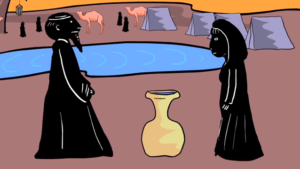 The life of Sarah begins with her death. And from death, new life begins.
The life of Sarah begins with her death. And from death, new life begins.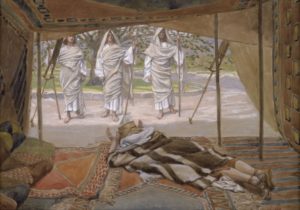 Last week I noted that there is a Midrashic tradition that Torah existed before Torah (as we know it). In Midrash Bereshit Rabbah we see an elucidation of this idea. Referencing Mashal, or the Book of Proverbs, our Sages discuss how Wisdom existed before Creation. “The Lord made me as the beginning of His way, the first of His works of old” [Prov. 8:22]. Our Rabbis loved back-dating – “the older, the better”, and this pre-history certainly grounds that maxim.
Last week I noted that there is a Midrashic tradition that Torah existed before Torah (as we know it). In Midrash Bereshit Rabbah we see an elucidation of this idea. Referencing Mashal, or the Book of Proverbs, our Sages discuss how Wisdom existed before Creation. “The Lord made me as the beginning of His way, the first of His works of old” [Prov. 8:22]. Our Rabbis loved back-dating – “the older, the better”, and this pre-history certainly grounds that maxim.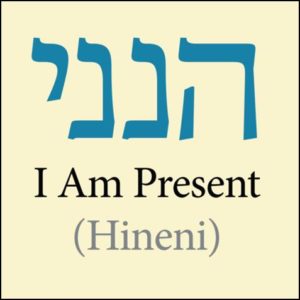 With the opening of Lech Lecha, I realize again how difficult it is to go beyond these two not-so-simple words. Go. Go where? What constitutes a journey, especially in our minds? How do we hear the voice of God: Commanding as in the domain of the Leviathan, or insistent as a mosquito? And how do we understand Lech lecha in the context of understanding the mitzvah of circumcision, brit milah?
With the opening of Lech Lecha, I realize again how difficult it is to go beyond these two not-so-simple words. Go. Go where? What constitutes a journey, especially in our minds? How do we hear the voice of God: Commanding as in the domain of the Leviathan, or insistent as a mosquito? And how do we understand Lech lecha in the context of understanding the mitzvah of circumcision, brit milah?
Vayeshev, No Means No
November 25, 2018 by Rabbi Lynn Greenhough • From the Rabbi's Desk
In 2002 at the end of our first International Chevra Kadishaconference in Rockland Maryland, I was given a copy of a tome I had, dare I say, long coveted. One of my fellow organizers gave me Joshua Jacobson’s book: Chanting the Hebrew Bible: The Complete Guide to the Art of Cantillation, all 965 pages. I cracked it open and saw this sub-heading on page 108: Rabbinic Exegesis of Shalshelet. I was smitten!
The shalshelet is one of 4 rare ta’amim – and it occurs four times in Torah, 3 times in Bereshit. One of those times is this week, in Vayeshev, when Potiphar’s wife is attempting to seduce Joseph and he refuses her invitations. Hit the shlashelet.
Shalshelet means chain; this ta’am is a three-part chain both in appearance and sound. Our Sages suggest that its placement over the word “refused” implies that the chain of tradition (shalshelet mesorah) allowed Joseph to envisage his father’s face, which then enabled him to resist the charms of Mrs. Potiphar and to not break that chain of generations. That said, Joseph did marry an Egyptian woman later on and there was nary a ta’am reminding or rebuking him then. Jacobson is slightly dismissive of such metaphorical readings. As he notes, the shalshelet – as with other ta’amim – holds a much more functional and grammatical aspect.
In traditional Judaism the previously mentioned shalshelet mesorah is a chain of tradition understood to be unbroken – and references the rituals, traditions, and texts that have informed the Judaism of generations past, present and future.
In our sidra this week, Joseph sees himself in the eyes of Potiphar’s wife and he refuses to break this chain. It is one of those “no means no” moments in Torah. The shalshelet over the word “refused” adds an emphatic and elongated aspect to his refusal. With apologies to Jacobson, did Joseph refuse three times? Does the ba’al or ba’alat kriah chant the shalsheletdifferently at each third of the note, perhaps increasing the volume sequentially within the ta’am? The brilliance of the cantillation system is that it not only allows the reader some degree of interpretation, it demands that act of interpretation from the reader.
Joseph’s refusal evokes our sympathy. He is young, but nevertheless, the delectable advances of his mistress are such that a question hangs in the air – how could he refuse? He must have been aware of his setting – the sumptuousness of which implied power. Joseph was sold by his brothers to Potiphar, who was a captain of the Egyptian guard, ominously, he was named Chancellor of the Butchers. Eventually Potiphar put Joseph in charge of his personal household. Temptations must have been many. But Joseph’s no meant no, however tempted he might have been. Mrs. Potiphar’s claims, though false, were taken for truth, and he was imprisoned.
The years he spent in the dungeon bespeaks a kindness in many ways – one could easily imagine rulers of that age not thinking twice about beheading such young men. But, in Biblical fashion, there is an ironic resolution that will play itself out as Joseph comes into his own power.
After Joseph’s interpretation of Pharaoh’s dreams, and his subsequent appointment as overlord of Egypt, he is said to have married a woman named Asenath, who was the daughter of one Poti-Pherah. Poti-Pherah may have been the same person as Potiphar – and/or of his wife. Joseph thus married the daughter of the woman who had accused him of rape. But if, at any point, if Joseph had not refused, if he had not spent time in prison with the Chancellor of the Cup Bearer and Chancellor of the Bakers, if they had not heard his wondrous interpretations of their dreams, if he did not live to interpret Pharaohs dreams – this shalshelet of events would have been broken. The unbroken chain enables our story to gallop forward. Chad Gadya, chad gadya…
The ta’am shalshelet marking Joseph’s refusal might also indicate a memory of his own dreams – one does not forget such significant dreams. He knew that God would bring the sheaves to bow before him. His time was not yet. Franz
Rosenzweig*and Joseph thus become linked by a phrase – not yet – that brings them into my modern day shalshelet: Chevra Kadisha linking “not yet” (perhaps an early version of the marshmallow test), and dreams with our ongoing exegesis of Torah. So too may we all be wondrous and innovative links in this chain of shalshelet mesorah.
Shabbat shalom
*When German Jewish theologian Franz Rosenzweig was asked whether he performed a particular mitzvah, he often replied, “Not yet.” He recognized Judaism as a process, something living and capable of change. He also taught that it was in the doing of a mitzvah that one understood the significance of that mitzvah. What is that space between not ready, not yet, and maybe, now? It will be different for each of us.